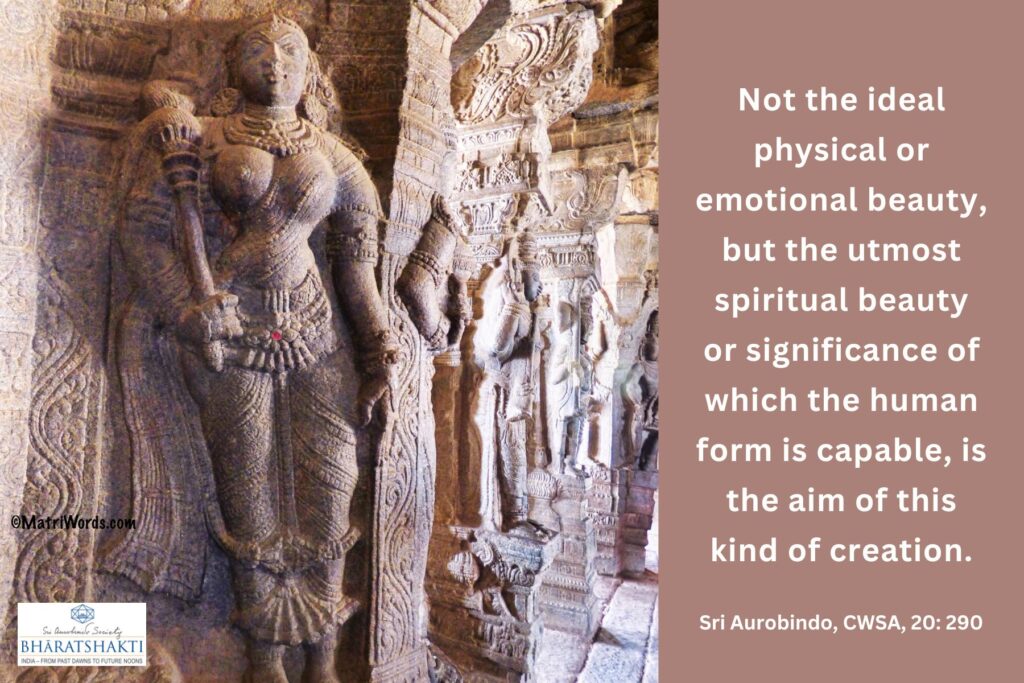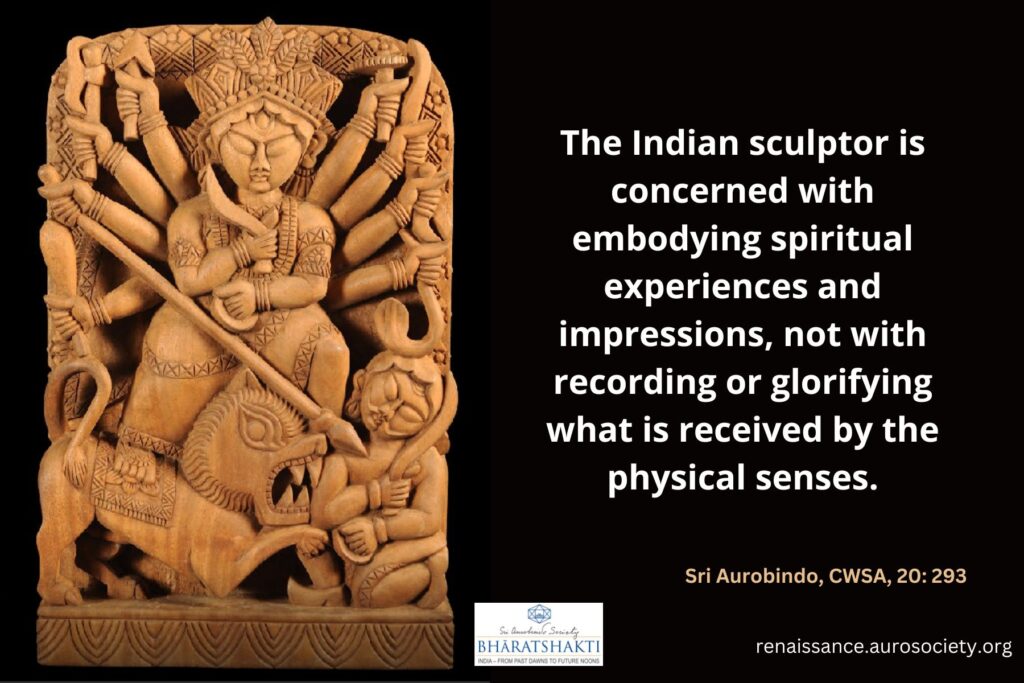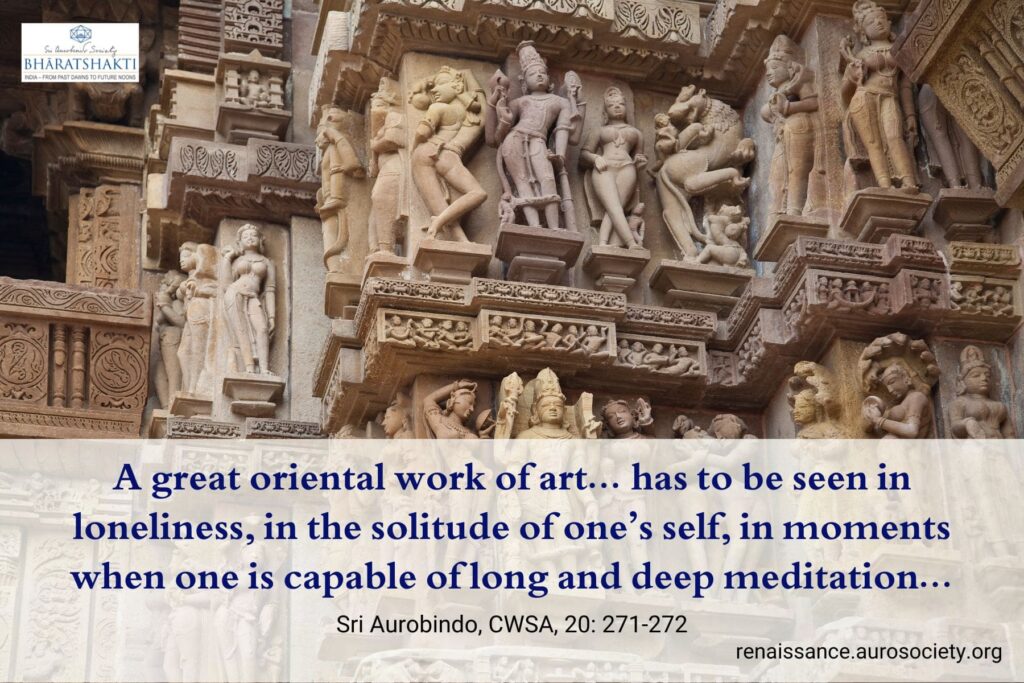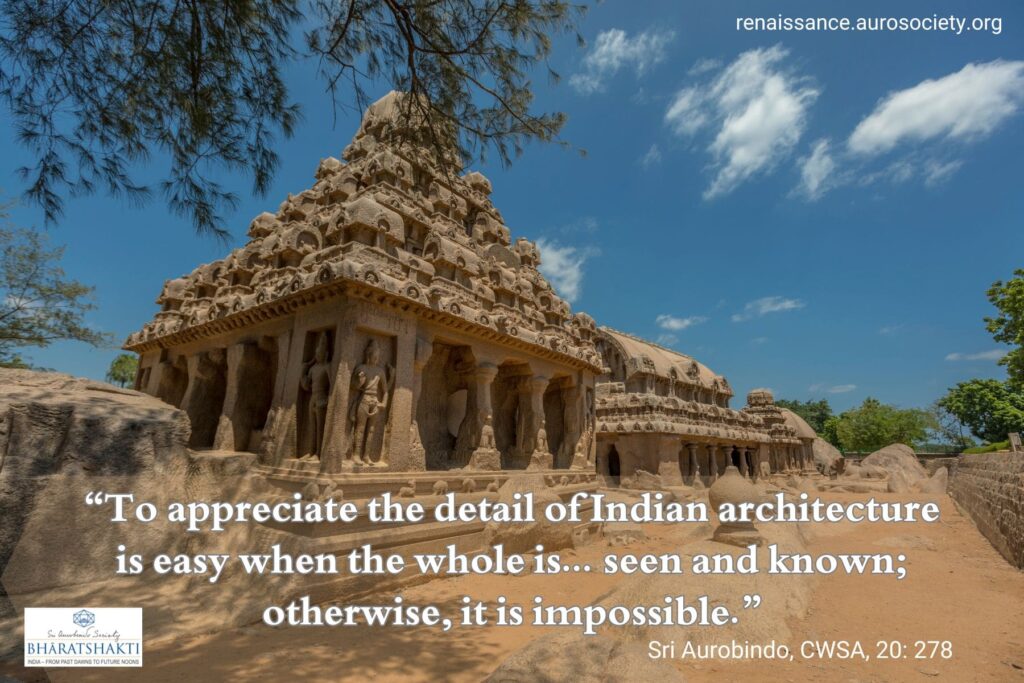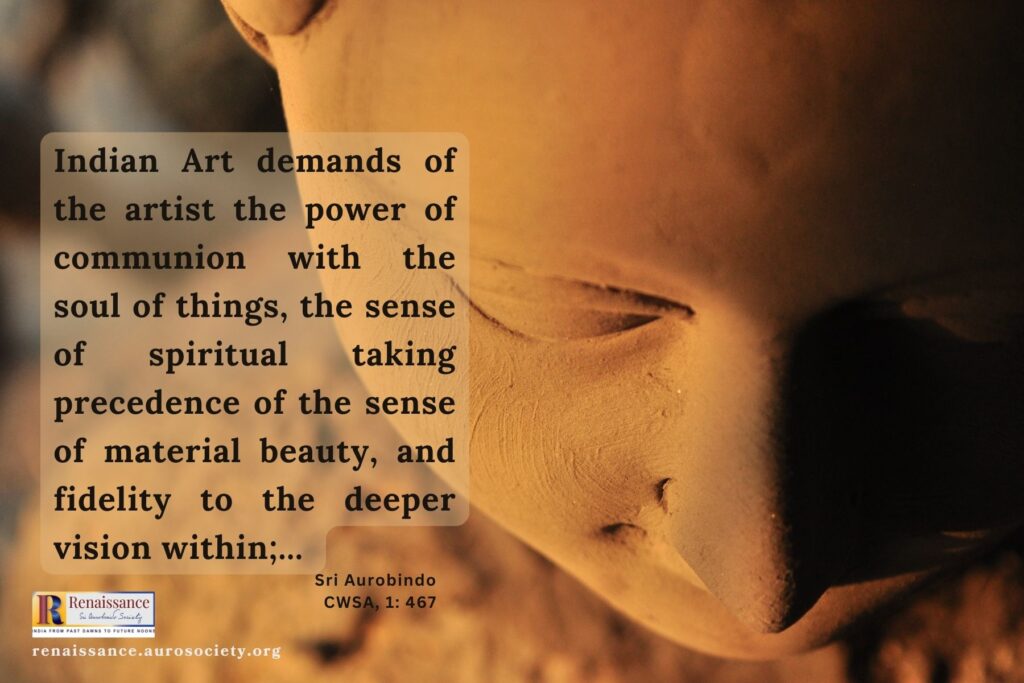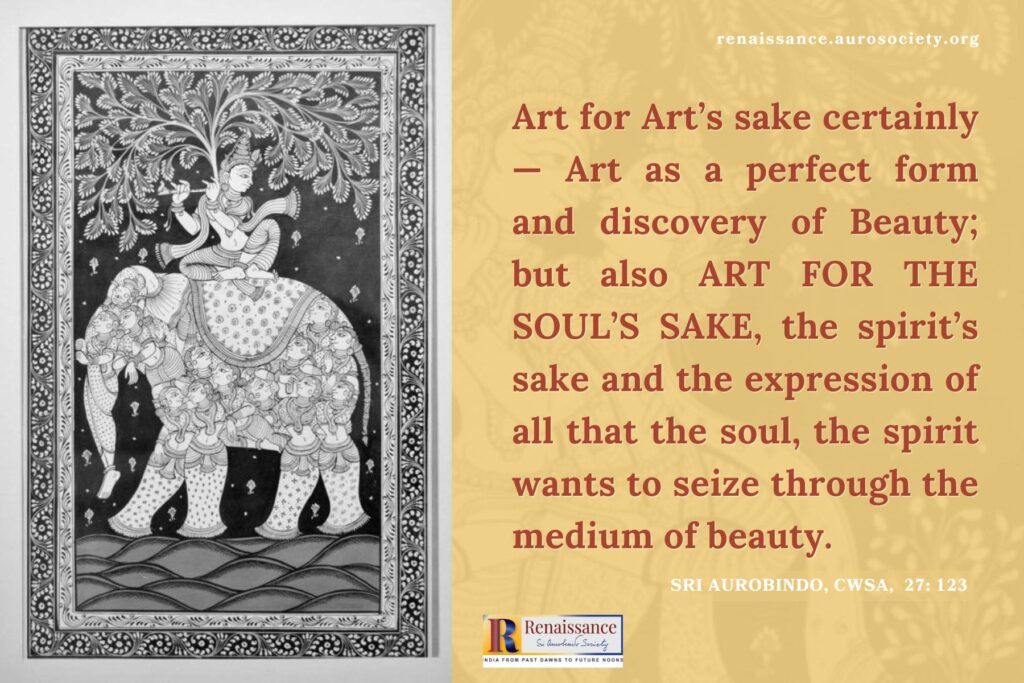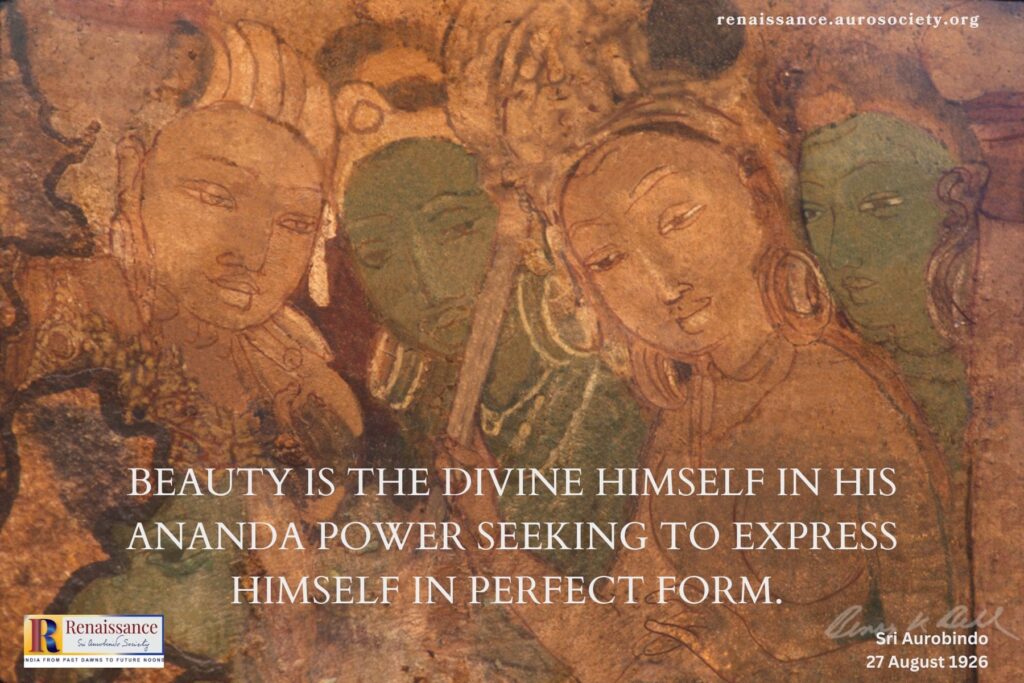Spiritual Motive of Indian Sculptural Art – I
Read Sri Aurobindo’s inspiring description of the profound intention and motive which guides Indian sculptural art, and its deep and intimate connection with the spiritual and religious-philosophic vision that is at the source of all Indian cultural expressions.
Spiritual Motive of Indian Sculptural Art – I Read More »

